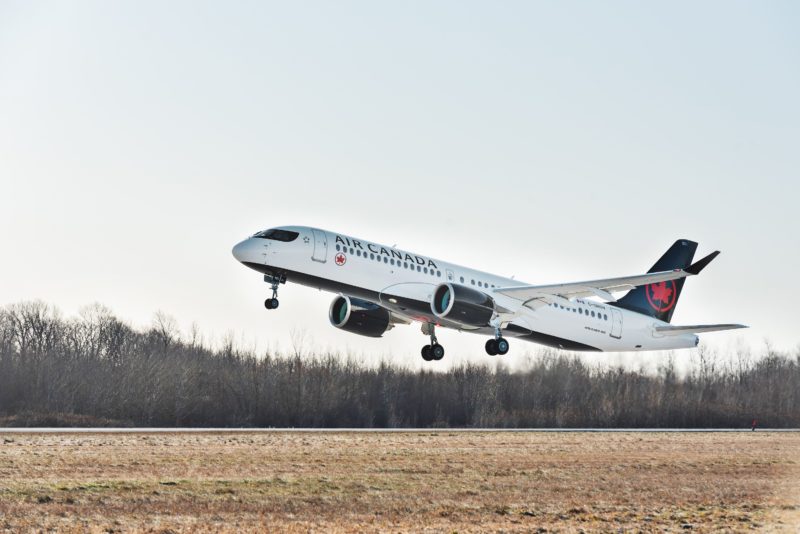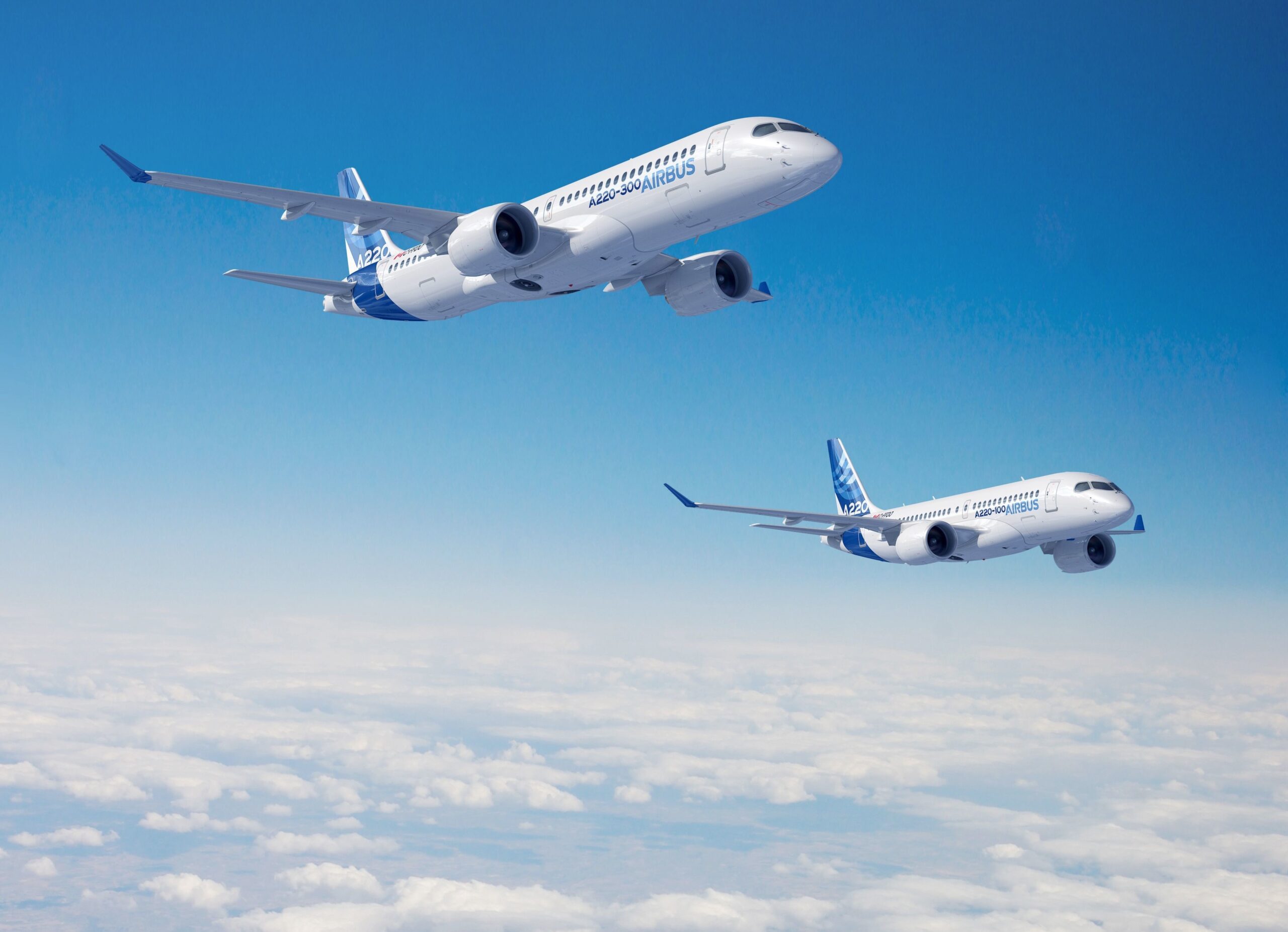Airbus and the Government of Quebec have increased their shares in the A220 program, as Bombardier has officially departed the commercial aviation sector.
The deal now sees Airbus with a share of 75 percent, compared to their initial 50.01 percent when the partnership was signed in July 2018, and leaves the Government of Quebec with an increased share of 25 percent.
As a result of the deal, Bombardier will receive $591 million, of which $531 million was received at closing; the remaining $60 million will be paid during the 2020-2021 period. The agreement also provides for the cancellation of Bombardier warrants owned by Airbus; as well as releasing Bombardier of its future funding capital requirement to Airbus Canada, says the company in a press release.
From 2026 Airbus will be able to redeem the Government of Quebec’s share in the program, which is three years later than previously disclosed.

Included in this transaction is the acquisition of A220 and A330 work package production capabilities from Bombardier in Saint-Laurent, Quebec, via its wholly owned subsidiary Stelia Aerospace. This inclusion secures 360 jobs in Quebec and forms part of 3,300 jobs in total provided by the Airbus’ presence in the location.
“This agreement with Bombardier and the Government of Québec demonstrates our support and commitment to the A220 and Airbus in Canada. Furthermore it extends our trustful partnership with the Government of Québec. This is good news for our customers and employees as well as for the Québec and Canadian aerospace industry.”
Airbus Chief Executive Officer, Guillaume Faury
With a 75% share now in Airbus’ hands, the company can continue to streamline A220 production whilst increasing the production rate to meet customer demand. Since Airbus took majority ownership of the A220 program in 2018, total cumulative net orders for the aircraft have increased by 64 percent to 658 units as of the of January 2020. This is thanks to Airbus’ increased marketing and adoption of the aircraft into its existing family.
Previously known as the Bombardier CSeries, Airbus first took a share in the program in 2017; with the aim of adopting the aircraft to improve their product lineup, without having to commit to an all-new design. Following the completion of the majority share agreement, Airbus dropped the CSeries name in favour of the A220.
On the other side of the duopoly, Boeing has responded to Airbus’ actions with the A220 by proposing a merger/join-venture with Embraer; which has been approved by various government, regulator and international parties, under the name Boeing Brasil Commercial.
Airbus states that the single aisle market is a key growth driver, representing approximately 70 percent of the expected global future demand for aircraft. Seating anywhere from 100 to 150 seats, the A220 is described as being “highly complimentary” to Airbus’ existing single-aisle aircraft portfolio; which primarily focuses on the 150-240 seat range.
The majority share in the A220 program and Boeing’s deal with Embraer, which holds the E2 Series, brings a new scale to the highly-competitive aviation market; this also potentially paves the way to a new series of single-aisle aircraft, to replace existing A320 and 737 platforms.
At the end of January 2020, 107 A220 aircraft were recorded flying with seven customers on four continents. In 2019 alone, Airbus delivered 48 A220s and has plans to further increase this figure. Although exact numbers are yet to be disclosed, a Flight Global interview with Airbus Canada chief executive, Philippe Balducchi, notes that the company is looking at 14 monthly across its Montreal and Mobile, USA production sites.
What are your thoughts on Bombardiers exit from commercial aviation?


